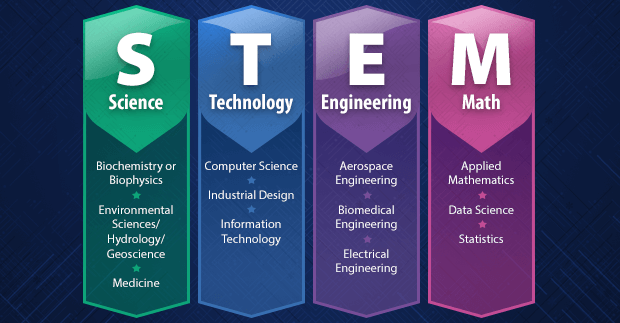The significance of Computer Science cannot be overstated. But amidst the vast array of academic disciplines, a common question arises: Is Computer Science considered a part of STEM? Let’s delve into this query to uncover the intricate relationship between Computer Science and STEM fields.
Defining STEM
STEM stands for Science, Technology, Engineering, and Mathematics. It encompasses a wide range of disciplines that are crucial for understanding the world and driving innovation. Science explores the natural world, technology focuses on practical applications, engineering designs solutions, and mathematics provides the language to express and analyze phenomena.
Understanding Computer Science
Computer Science, on the other hand, deals with the study of computers and computational systems. It involves understanding algorithms, data structures, programming languages, and the theoretical foundations of computing. While it has its unique focus, Computer Science intersects with various STEM domains, making it an integral part of the interdisciplinary landscape.
The Interdisciplinary Nature of Computer Science
One of the remarkable aspects of Computer Science is its interdisciplinary nature. It bridges the gap between different fields by providing tools and techniques that are essential for their advancement. For instance, computational biology utilizes algorithms from Computer Science to analyze genomic data, while environmental science benefits from modeling and simulation techniques.
Computer Science Education
In educational institutions, Computer Science programs are often housed within STEM departments. Students pursuing degrees in Computer Science gain not only technical proficiency but also critical thinking and problem-solving skills that are highly valued across STEM disciplines. As technology continues to evolve, the demand for computer science education has surged, reflecting its indispensable role in modern society.
Career Opportunities in Computer Science
The field of Computer Science offers a plethora of career opportunities, ranging from software development and cybersecurity to artificial intelligence and data science. With the digitization of industries and the emergence of new technologies, professionals with expertise in Computer Science are in high demand, commanding competitive salaries and diverse job prospects.
Contributions to Scientific Advancement
Computer Science plays a pivotal role in driving scientific advancement. From simulating complex systems to analyzing large datasets, computational techniques have revolutionized research across various domains. Whether it’s accelerating drug discovery, predicting climate patterns, or exploring the cosmos, Computer Science empowers scientists to tackle grand challenges and push the boundaries of knowledge.
Challenges and Future Prospects
Despite its myriad benefits, Computer Science faces challenges, particularly concerning diversity and inclusivity. Efforts are underway to bridge the gender and racial gaps in the field and make it more accessible to underrepresented groups. Looking ahead, the future of Computer Science appears promising, with ongoing developments in areas like quantum computing, machine learning, and augmented reality poised to shape the world in profound ways.
Conclusion
In conclusion, Computer Science undeniably falls within the realm of STEM. Its interdisciplinary nature, educational integration, career opportunities, and contributions to scientific advancement solidify its position as a vital component of the STEM landscape. As we navigate the complexities of the digital age, Computer Science will continue to play a pivotal role in shaping our understanding of the world and driving innovation.
FAQs:
- Is Computer Science a STEM major?
- Yes, Computer Science is a STEM major as it encompasses principles of Science, Technology, Engineering, and Mathematics.
- What are some examples of STEM careers in Computer Science?
- Examples include software developer, data scientist, cybersecurity analyst, and computer systems analyst.
- Why is Computer Science important in STEM education?
- Computer Science fosters critical thinking, problem-solving, and computational skills essential for success in STEM fields and beyond.
- How does Computer Science contribute to scientific research?
- Computer Science provides tools and techniques for data analysis, simulation, and modeling, accelerating advancements in various scientific disciplines.
- What steps can be taken to encourage diversity in Computer Science?
- Initiatives such as outreach programs, mentorship opportunities, and inclusive curriculum can help foster diversity in Computer Science.


